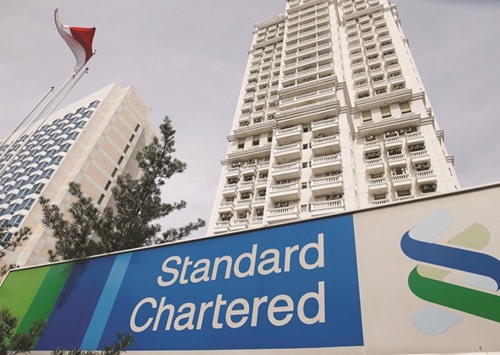Standard Chartered has told “appropriate authorities” about alleged corruption at an Indonesian power plant company majority-owned by its private equity arm, the bank said.
The lender’s comment came in response to a Wall Street Journal report that the US Department of Justice is investigating whether Standard Chartered failed to stop possible bribery and other misconduct at MAXpower Group Pte Ltd, which builds and operates gas-fired power plants in Southeast Asia.
The allegations compound the legal woes of the bank, which is subject to a deferred-prosecution agreement with the Justice Department over alleged Iranian sanctions breaches and faces possible prosecution if found to have committed another federal crime.
“Standard Chartered takes very seriously allegations of impropriety in any of our private equity investments. We proactively referred this matter to the appropriate authorities and have conducted our own review,” a spokesman for the bank said in an emailed statement on Tuesday.
Two people familiar with the matter said that the “appropriate authorities” included the US Department of Justice. A Justice Department spokesman declined to comment.
In 2012, Standard Chartered admitted to breaking US sanctions against Libya, Iran and Sudan. The bank signed a deferred-prosecution agreement, allowing the Justice Department to later bring criminal charges for the sanctions busting if the bank was caught committing another federal crime in the following two years.
But the Justice Department extended the bank’s scrutiny through 2017, after authorities said they discovered other possible violations the bank had not revealed. US authorities could tear up the agreement entirely, and bring the earlier sanctions charges, if they determine that Standard Chartered has committed “egregious enough” misconduct, said William Jacobson, a white-collar defense attorney at Orrick, Herrington & Sutcliffe LLP.
“What the government should weigh is the severity of the misconduct discovered, but that’s in the eye of the beholder,” Jacobson said.
The Indonesian company allegedly paid bribes to win contracts and smooth relations with Indonesian energy officials, the Wall Street Journal said, citing sources and legal reports it has reviewed.
An internal audit at MAXpower found evidence of bribery and other misconduct, the Journal said, saying those findings were echoed in a report from a law firm hired by MAXpower.
In response, MAXpower said the newspaper report gave a “one-sided and partial view of the operations and events at MAXpower and as such do not give a full, or true view.” “Since the restructuring of the company’s shareholding and management in mid-2015 the company has implemented robust remedial actions including enhanced internal controls.
“We have engaged and continue to work with professional advisory firms to fully investigate issues and questions that have been raised. Accordingly, it would be inappropriate for the company to comment further at this stage,” it said.Standard Chartered’s private equity arm first invested in MAXpower in 2012 and last year pumped in an additional $60mn to become the majority owner.
The bank has been reducing the size of its private equity business in recent years, axing jobs and selling investments as part of a wider restructuring of the bank. Bloomberg reported earlier this month that Standard Chartered was considering spinning out its entire private equity business to its managers.
Two separate sources with knowledge of Standard Chartered’s operations said that Benjamin Soemartopo, managing director and head of its Indonesia private equity business, is leaving the bank. Soemartopo is also listed as a director on the board of MAXpower.
One of the two sources said that Soemartopo’s move to leave Standard Chartered was a result of restructuring of the lender’s private equity business.
Standard Chartered declined to comment on the banker’s move, and Soemartopo could not be reached for a comment. The sources did not want to be named because the information is not public.

A Standard Chartered signboard is seen outside of a building in Jakarta. The London-based bank, which controls the MAXpower Group, acknowledged on Tuesday it was being investigated by the US Department of Justice over claims an Indonesian power company had paid kickbacks to secure contracts.
